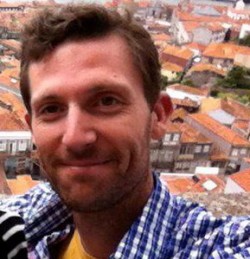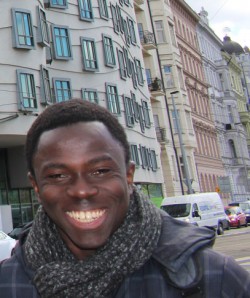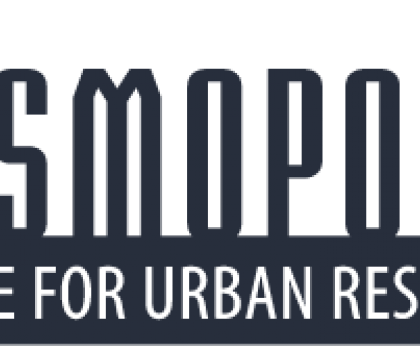Master of Science in Urban Studies: EMJMD 4CITIES
The Master in Urban Studies (4Cities) is a unique two-year interdisciplinary and international programme. It has been selected as an Erasmus Mundus Master Course. There are three separate tracks that students in 4CITIES follow: Classical, Research, and Practice. The first year is the same for all three tracks. Students in the Classical Track spend the third and fourth semesters together, following a shared curriculum in Copenhagen and Madrid. This is how 4CITIES has been organized since it began in 2008, hence “classical.” Students in the Research and Practice tracks spend their second year interning at an approved research institution or work-placement, respectively, and completing 25 ECTS of self-chosen coursework at a 4CITIES partner institution. These tracks have been designed for students who intend to pursue careers in research and practice, respectively.
For more detailed information and to apply, go to the 4CITIES website.
Why 4CITIES?
As the world continues to urbanise and globalise, cities are becoming the predominant form of human settlement and the scale at which many of the most pressing societal issues are engaged. Although urban studies, in which the city is both object and context, is an inherently interdisciplinary field, it is too often limited by national containers. In response, 4CITIES brings a distinctly European viewpoint to issues concerning urbanity and urbanization that are simultaneously locally unique and globally networked.
Glocalization, or the ways in which global forces interact with local conditions, is a key part of the programme’s multiscalar perspective, and it is seen as essential for new approaches in important fields of urban policy such as culture, economy, and planning. 4CITIES was developed to provide an immersive, experiential urban studies education that overcomes geographic and disciplinary boundaries while embracing the diversity of actors, forces, and contexts that are shaping the 21st century city.
Where is 4CITIES?
The Classical 4CITIES track spends a semester in each of four European capital cities: Brussels, Vienna, Copenhagen, and Madrid. Additional excursions to a diverse set of cities such as Rotterdam, Antwerp, Budapest, Malmö, and Zaragoza are also organised in each semester. Students in the Research and Practice Tracks also spend their first and second semesters in Brussels and Vienna before spreading out across Europe to conduct internships or work-placements and additional coursework at one of our academic partner institutions. During summers and holidays, students self-organize trips to cities throughout Europe and occasionally beyond. It is not uncommon to visit 20 countries and more than 50 cities over the course of the program.
How is 4CITIES?
In a word? Challenging. While the 4CITIES teaching and administrative staff provides guidance, students are expected to be highly independent. They must find their own housing as they move from city to city, navigating a gauntlet of practical, cultural, and linguistic differences. After four months or so, just as students begin to find a routine and feel comfortable with their surroundings, it’s time to move again. While this obviously requires a high degree of independence and self-reliance, students must also be cooperative and collaborative, as much of the academic work in 4CITIES is done in groups. Spending so much time traveling and studying and socializing together can turn cohorts into extended families, with all the support and occasional conflict of traditional families. The experience can be intense, and adaptability is a prerequisite for success.
4CITIES is not a normal graduate program, and it does not offer a normal academic experience, but that is very much by design. The multifaceted complexity of cities is difficult to grasp, and so 4CITIES takes a holistic and immersive approach. Theory and practice are seen as mirrors, each critically reflecting the other. The city is engaged as an evolving narrative, more dialogic than linear, and students learn to see “The City” as manifold and emergent, to hear it, to participate in it, and to understand it, all while experimenting with their role in shaping it. Life and scholarship in 4CITIES are not always easy, but for those who embrace its unique approach the program can be immensely rewarding, inspiring, and transformative.
For an overview of all Master courses, click here.

I came to the VUB from the United States because the opportunity to join the 4Cities Erasmus Mundus Master Course in Urban Studies was too good to pass up. At the core of urbanity is the interaction of diversity, the ways in which different perspectives, attitudes, skill sets, and ways of living rub against each other. What better way to study urbanity than in situ, in six different universities, four different cities in four different countries, and with a cohort of 25 fellow students from wildly different academic, cultural, and linguistic backgrounds? Our first stop was Brussels and VUB/ULB. The semester was intense, challenging, and inspiring. 4Cities was, for me, transformational in the best sense of the word.
Joshua Grigsby

I studied Development Planning as an undergraduate in Ghana. I was always interested in urban issues - especially urban transportation. So after my Bachelor degree I applied for a Master in Urban Studies at VUB. The multidisciplinary approach of the courses provided me with a wide variety of angles to view urban issues and it gave me the chance to push myself and to have an interest in other paradigms of thought. The semester at VUB was my first experience in Europe. But the diversity of the people, the vitality of the city together with its key function as the heart of the European Union meant that I could not have chosen a better city to start my education in Europe.
William Otchere-Darko

